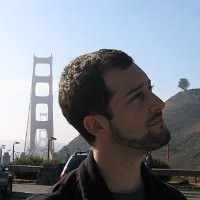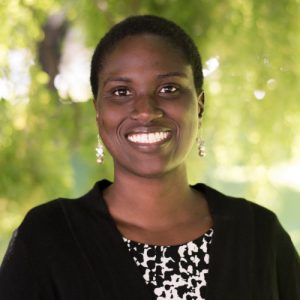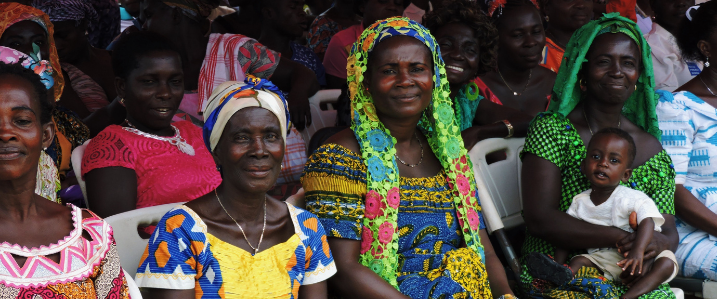There are about 5 billion people globally whose justice needs are unmet, including those who cannot obtain justice for everyday problems, those who are excluded from opportunities the law provides, and those who live in extreme conditions of injustice. While there are different justice systems in different parts of the world, this event will focus on how we can use community-led approaches to reduce the gap in access to justice in a non-discriminatory manner in every justice system.
Watch the recording:

Panelists:



KEY TAKEAWAYS
Accessing justice is particularly tough for rural, low-income and other communities. During this event we learned that:
- Effective community-level justice systems can overcome the obstacles of income inequality and ensure the participation of all members of society.
- Trusted members of local communities must be engaged and empowered to develop sensitive, representative, enduring, and effective justice systems that are appropriate for particular contexts.
- Community members must be recognised as experts on their own lives, and must be a guiding force in problem-solving.
CLD in the Justice System
Five billion people do not have meaningful access to justice, according to the World Justice Report. Who a person is within a community also impacts access to justice. Community-level initiatives are indispensable to opening access to justice, and can take many forms, such as community lawyering, transformation of traditional courts, and community-based justice systems.
Development agencies continue to view rural communities as inexpert. This common Development mindset diminishes communities, ironically, given that community members are the experts on their own lives. Challenging this perception is vital for the success of the projects discussed in this event.
‘Animators’ as a key to access to justice: The Hunger Project’s work in Ghana
Samuel Afrane, Country Director for The Hunger Project (THP) Ghana, highlights the disadvantages faced by women and children within the justice system. THP partners with women to shift power dynamics within the community and gain voice and agency. This in itself is a form of access to justice, empowering women to have equal influence with men on community matters.
In this project, members of the community are selected and appointed by the community itself and trained to be ‘animators’. These animators facilitate access to the justice system, trained in such issues as human rights, women’s and children’s rights, and inheritance law.
The animators also build the capacity of households and social groups to take on an array of roles critical to justice processes: mobilizers, watchdogs, arbitrators, and facilitators for social justice. They become a critical link to Ghana’s national justice systems and institutions (e.g., the police’s victim support unit, the commission of human rights, and department of social welfare). They are able to arbitrate in non-criminal cases, and have significant success in combating child marriages.
The Hunger Project’s model mobilizes animators to “spearhead access to the justice system within the rural communities”, launching a powerful community institution with women in key roles, that supports and engages the national justice system.
Non-judicial options for communities: Upholding accountability in Haiti
Harmful internationally-financed projects can deprive communities of environmental and human rights. Accountability Counsel assists communities to defend their environmental and human rights as they relate to international financed projects, through non-judicial channels. The organisation assists communities to file complaints and independent accountability mechanisms at financial and development institutions, including the World Bank. These independent accountability mechanisms have three core functions: compliance review, dispute resolution and advisory functions.
Stephanie Amoako, Senior Policy Associate, Accountability Counsel, highlighted reasons for communities to use independent accountability mechanisms instead of using the formal court system:
- Significant monetary constraints affect poorer communities’ ability to access the formal court system.
- The independent accountability mechanism’s processes are designed so that communities are not obliged to hire costly lawyers.
- Issues are often time sensitive (e.g., environmental damage) and require the mechanism’s swifter process.
Accountability Counsel increases accessible legal knowledge through “‘Knowledge share training’, so that any community can use the mechanisms without having our assistance”. The mechanism can receive complaints in any language, without requiring burdensome evidence by impacted communities, greatly increasing their ability to access assistance. She emphasised that Accountability Counsel’s “work to create new mechanisms so that these communities can have these avenues for justice, no matter who is financing the project”, is invaluable to keep large development agents accountable.
Stephanie illustrated this with a Haitian example. Here, an Inter-American Development Bank (IDB) financed project displaced a community by constructing an industrial park on their farmland. Accountability Counsel supported communities to engage in a dialogue between the IDB, the communities, and the Haitian government, that was facilitated by the IDB’s accountability mechanism. The parties successfully negotiated an agreement that includes replacement land, livelihood support, and employment at the industrial park.
Alternative legal services: ‘Community paralegals’ in Malawi
When a rural Malawian needs access to justice, they are unlikely to have local police or magistrates courts to turn to. Clifford Msiska, founder of Paralegal Advisory Services in Malawi, explained how in 2007 the idea of ‘village mediators’, or ‘community paralegals’ was raised, providing an “appropriate, effective, affordable legal services scheme” for access to justice.
Mediators are favoured by communities because:
- Few people would approach the formal legal system, preferring to work within the community to “protect, improve, and restore relationships”.
- Mediators are local, therefore trusted, and immediately available.
- Having criminal issues dealt with by courts is divisive in local communities, as imprisonment causes rifts between families and groups, endangering the social fabric.
- Mediation is free, neutral, and based on the principle of confidentiality..
It is important to consider that buy-in by existing traditional leadership is essential to avoid conflict in undertaking this model.
Audience questions were posed to the panellists:
How can the reach of the justice system and accountability be expanded?
Clifford stressed that justice providers must complement each other, and be aware of when to refer cases to each other. Samuel added that the intricacies of the legal systems are known by the police and elites; common people are more likely to be familiar with traditional law. Animators marry traditional and national law, and educate using situational examples to demonstrate the application of each. Standardised punitive measures enshrined in national law and applied universally allow for greater accountability across the board, while the knowledge of which system should deal with which issue allows for mass implementation. Stephanie added that multiple mechanisms and avenues for justice should be available to communities.
How does the community find out about these services?
Accountability Counsel curates a database of complaints, and practices outreach into areas with ongoing projects. Members of civil society coalitions know the organisation, and will request their assistance. In the case of The Hunger Project, the local emphasis of the project ensures community representation in its activities, while practical materials like loudspeakers ensure large numbers of people have access to information at a time.
Meeting participants then broke into participatory groups to further explore the challenge of access to justice for local communities.
Breakout Group I: Lawyers- what role do they play?
We must be sensitive to which issues are appropriate for lawyers or non-lawyers to deal with. Florencia Guerzovich, Global Partnership for Social Accountability (GPSA) explained that this challenge could be dealt with by envisioning a quilt, “a patchwork of stories that are partly overlapping, but with different cases to be made, whether this is in terms of the goal- to punish, mediate, or preventative”.
The importance of social accountability was underlined:
- In India, a practice of youth-led mutual participation was established, involving all members of the society, and inviting governmental representatives. This ensured collective accountability.
- In Cambodia, instances of torture were reduced by increased visibility of legal representatives.
- In Uganda, urban youth were more organised and aware of opportunities to access legal resources than rural youth. In Bangladesh the decentralisation of national government to local officials countered similar problems of unequal access.
We need to encourage and facilitate youth participation, and to directly recruit leaders from communities. Stronger transparency, lower legal costs, and awareness of gender dynamics is still essential for universal access.
Breakout Group II: Rural vs urban access to justice- what can be done?
This group focused on Community Lawyering and legal empowerment, discussing national examples of access to justice initiatives and the divide between rural and urban access to justice. For example:
- In urban Uganda, communities have access to pro-bono services and lawyers catering to the poor. In rural areas, traditional leaders play an active role in local justice systems.
- In Bangladesh, training cadres of women from villages in legal issues related to women’s rights addresses the discrepancies in access to justice between rural and urban communities. This gap was also bridged by the decentralisation of national government to district authorities.
Breakout Group III: Accessibility- what should be considered?
The same concerns for wide representation and inclusivity in local governance structures should also be applied to justice systems. They highlighted the need to improve access for all people, not only on a class and gender level, but to cater to different languages and disabilities.
Breakout Group IV: Traditional justice systems- how can these be utilised?
Traditional and national justice systems need to be balanced. Legal language and justice systems are intimidating for many, not to mention unreachable. Traditional systems are more accessible and preferred by community members in many parts of the world, particularly in Africa and Asia. However, these systems are often steeped in patriarchal values and disregard principles of human rights and dignity. There were examples from Benin where the traditional leaders meted out disproportionate and harsh physical punishments for petty crimes.
The way forward is to conduct human rights training with the traditional institutions, and encourage trained mediators. There is also merit in encouraging lawyers to offer mobile clinics in rural areas.
Call to Action by David Jacobstein, USAID:
Justice systems should be more community-led and thoughtful. There needs to be a shift from paternalistically designing mechanisms for communities to empowering communities to build their own institutions. Local problem fixers must be assisted, and women and youth should be actively centred in the development of justice systems.
David Jacobstein raised the key value of trust – it is essential to be trustworthy, build trust with communities and to work specifically with those who are trusted within those communities. There is a need to reanimate development globally. Key actors who play mediating roles in communities not only improve justice outcomes, but form the fabric of urgently needed resilient democratic institutions and are vital in the “battle for the soul of democratic societies”.
Thank you to our small group mediators:
- Florencia Guerzovich, Global Partnership for Social Accountability (GPSA)
- Joaquín Caprarulo, Asociación Civil por la Igualdad de la Justicia (ACIJ)
- Ann Hendrix-Jenkins, Senior Advisor for National Chapters, MCLD and Senior Advisor, Strategic and Programmatic Communication, Tostan
- Gunjan Veda, Senior Advisor for Global Collaborative Research and Public Policy, MCLD
Would you like to get more involved in the Movement for CLD-and build your knowledge and skills in the process? SUBSCRIBE HERE


